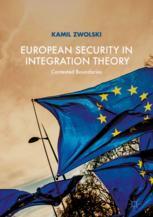

Most ebook files are in PDF format, so you can easily read them using various software such as Foxit Reader or directly on the Google Chrome browser.
Some ebook files are released by publishers in other formats such as .awz, .mobi, .epub, .fb2, etc. You may need to install specific software to read these formats on mobile/PC, such as Calibre.
Please read the tutorial at this link: https://ebookbell.com/faq
We offer FREE conversion to the popular formats you request; however, this may take some time. Therefore, right after payment, please email us, and we will try to provide the service as quickly as possible.
For some exceptional file formats or broken links (if any), please refrain from opening any disputes. Instead, email us first, and we will try to assist within a maximum of 6 hours.
EbookBell Team

4.1
30 reviewsThis book examines federalism and functionalism – two fundamental, yet largely forgotten, theories of international integration. Following the recent outbreak of the war in Ukraine, policy practitioners and scholars have been in search of a deeper understanding of the likely causes of the conflict and its consequences for the European security architecture. Various theories have been deployed to this end, but international and European integration theory remains conspicuously absent. The author shows how the core tenets of integration theories developed after World War I, particularly how they viewed territoriality and geopolitical boundaries, remain as relevant today as they were almost 100 years ago.